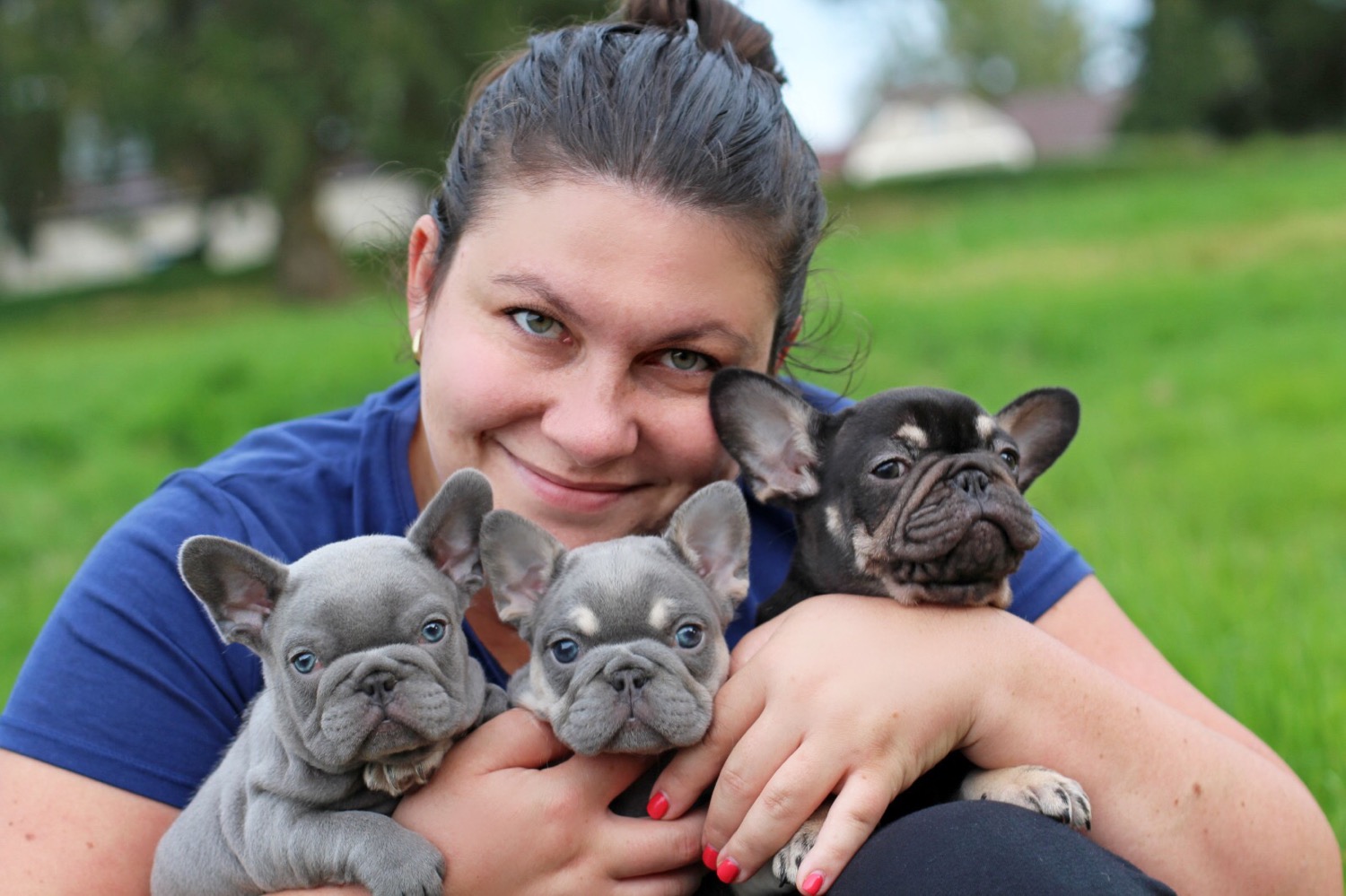French Bulldog diet and nutrition
- Alexandra Spolbo

- Aug 10, 2023
- 3 min read
1 part
I. Understanding the Nutritional Needs of French Bulldogs
French Bulldogs have unique dietary requirements that must be met to ensure their overall health and well-being. Providing a balanced and nutrient-rich diet is crucial for their growth, development, and maintenance. When determining the right diet for your Frenchie, several factors should be considered, including their age, activity level, and any specific health conditions they may have.
II. Building a Balanced Diet for French Bulldogs
A. Macronutrients for Optimal Health
Protein, the building block of muscle, is essential for French Bulldogs' growth and repair processes. High-quality protein sources such as lean meats, fish, and poultry should be included in their diet. Carbohydrates play a vital role in providing energy and promoting healthy digestion. Incorporate complex carbohydrates like whole grains and vegetables into their meals. Healthy fats, such as those found in fish oil and coconut oil, are crucial for supporting their skin, coat, and overall well-being.
B. Micronutrients and Essential Vitamins and Minerals
Vitamins and minerals are essential for French Bulldogs' overall health. They contribute to the proper functioning of their immune system, bones, and organs. Include a variety of fruits and vegetables in their diet to ensure they receive a range of essential vitamins and minerals. Some key micronutrients to focus on include vitamin A, vitamin C, vitamin E, calcium, and iron.
C. Hydration: The Vital Role of Water
Proper hydration is crucial for French Bulldogs' overall health and helps maintain optimal bodily functions. Ensure your Frenchie has access to clean and fresh water throughout the day. Water should always be available, especially during hot weather or after physical activity to prevent dehydration.

III. Feeding French Bulldogs at Different Life Stages
A. Puppyhood Nutrition: Setting the Foundation for Growth
During the puppyhood stage, French Bulldogs have specific nutritional requirements for proper growth and development. Feed them a balanced diet that is rich in essential nutrients. Consider a high-quality puppy food formulated specifically for their breed size. It can be either raw or kibble. If you decide to introduce your puppy to raw make sure to understand the right proportions…
B. Adult Dog Diet: Maintaining a Healthy Weight and Lifestyle
As French Bulldogs transition to adulthood, it's important to adjust their diet to maintain a healthy weight and support their overall well-being. Determine their calorie intake based on factors such as their activity level, metabolism, and body condition. Monitor their weight regularly and make adjustments as needed to prevent obesity and promote a healthy lifestyle.
C. Senior Dog Nutrition: Adjusting for Aging Needs
As French Bulldogs age, their nutritional needs change. Senior dogs may require adjustments in their diet to address specific health concerns such as joint issues or reduced metabolism. Consider feeding them a senior-specific diet that is lower in calories but still provides essential nutrients. Consult with your veterinarian to create a tailored diet plan that meets their individual needs.

IV. Choosing the Right Food for Your French Bulldog
A. Commercial Dog Food: Understanding Labels and Ingredients
When selecting commercial dog food for your French Bulldog, it's essential to understand how to interpret labels and identify high-quality ingredients. Look for food that lists high-quality protein sources as the main ingredient and avoid those with fillers or artificial additives. Choose reputable brands that follow strict quality control measures and have a history of producing nutritious dog food.
B. Homemade and Raw Food Diets: Pros, Cons, and Considerations
Some French Bulldog owners opt for homemade or raw food diets. While these diets have their benefits, there are also potential risks and challenges. Homemade diets require careful attention to ensure proper nutrient balance, and raw diets may carry a higher risk of bacterial contamination. Consult with a veterinarian or canine nutritionist if considering these dietary options to ensure they meet your Frenchie's nutritional needs safely.
C. Combining Commercial and Homemade: Customizing the Diet
Combining commercial dog food with homemade meals allows for customization and the inclusion of fresh and nutritious ingredients. This approach can provide variety and enhance your French Bulldog's diet. Work with a professional, such as a veterinarian or canine nutritionist, to create a customized meal plan that meets your Frenchie's specific needs and ensures nutritional balance.
French Bulldog diet and nutrition - 2 part.




Comments